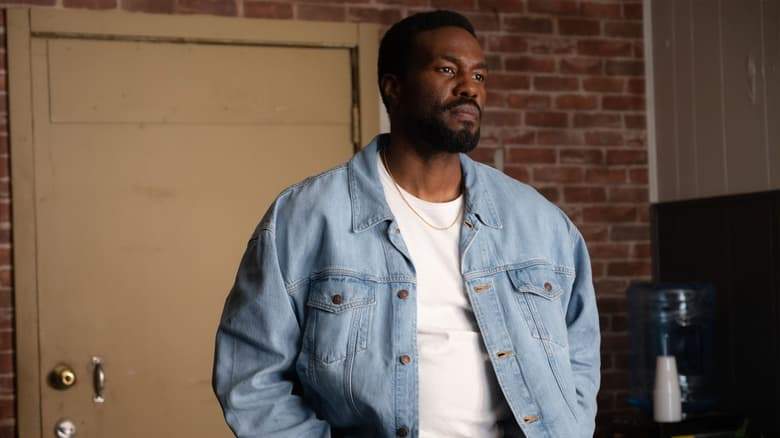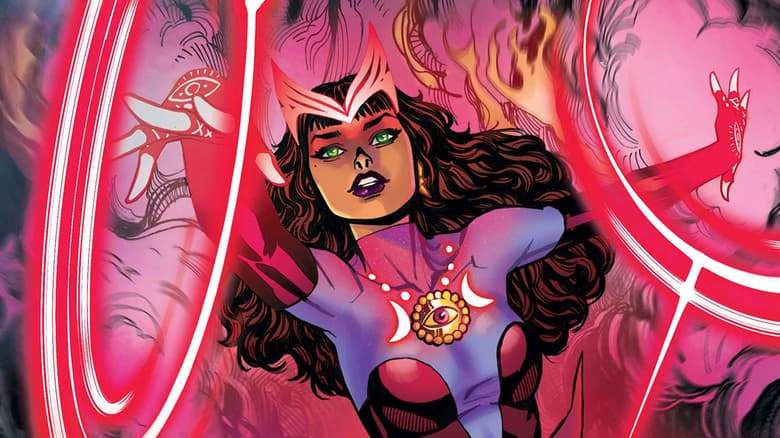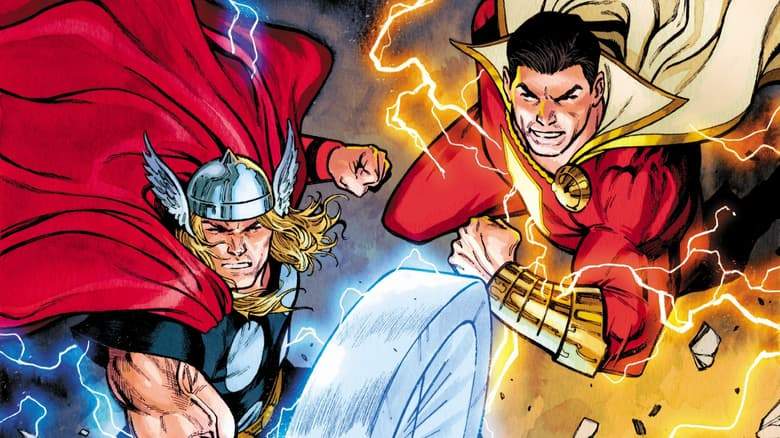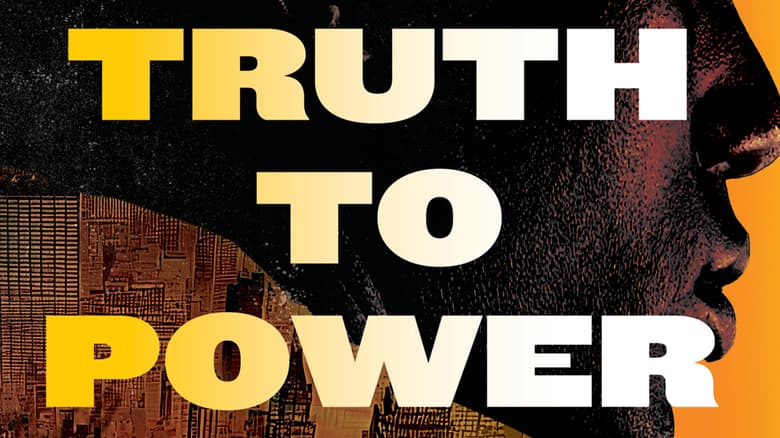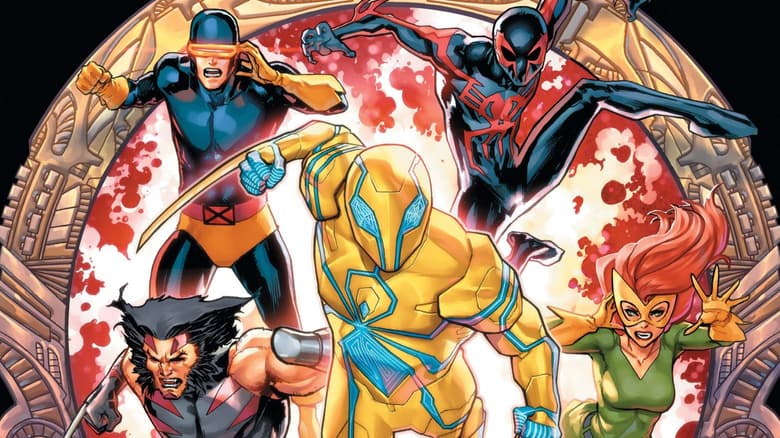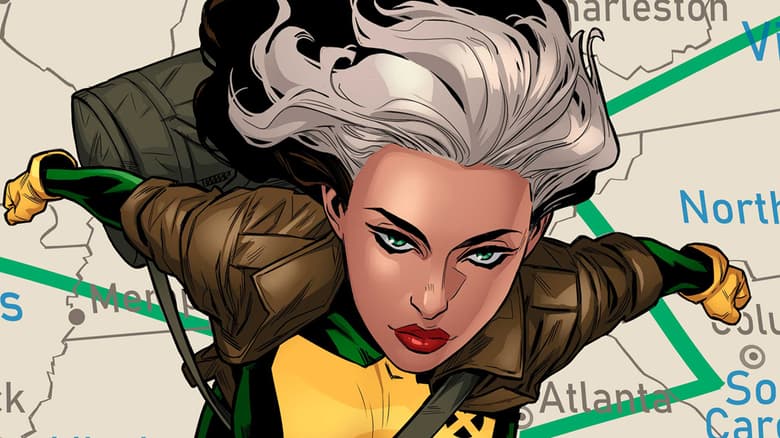Superhuman Laws and Legislation in the Marvel Universe
From Mayor Fisk’s anti-vigilante taskforce to the Superhuman Registration Act in ‘Civil War,’ learn all about how superhuman activity has been regulated or outlawed in the Marvel Universe.
Superhuman activity poses an interesting challenge to the law. While groups like the Avengers occasionally operate with government oversight, individual vigilantes like Spider-Man frequently occupy a legal grey area even though they help save lives. Some heroes even find themselves discriminated against simply for who they are, with the U.S. government consistently targeting the X-Men due to their status as mutants.
Over the years, the Marvel Universe's governments have gone to great lengths to regulate, and at times outlaw, superhuman activity. With the expertise of lawyers like Daredevil and She-Hulk, the heroes of the Marvel Universe fought some of their most consequential battles in courtrooms, where the course of history changed with the stroke of a pen.
Now, let's look back at some of the Marvel Universe's most notable laws and acts regarding superhuman activity. From Mayor Wilson Fisk's anti-vigilante task force to the Superhuman Registration Act that kicked off CIVIL WAR (2006), we're breaking down the pieces of legislation that reshaped the Marvel Universe.

THE MUTANT CONTROL ACT
The law that turned mutants into an endangered species did not originate in the main Marvel timeline, but rather the harsh "Days of Future Past" reality of UNCANNY X-MEN (1963) #141 by Chris Claremont and John Byrne.
After the Brotherhood of Evil Mutants assassinated Senator Robert Kelly in this alternate timeline, a mutant-hating politician was elected President of the United States and enacted the Mutant Control Act. When the United States Supreme Court ruled the law unconstitutional, the president responded by reactivating the mutant-hunting Sentinels. With their ruthless new programming, the Sentinels took over the United States in their efforts to wipe out mutants.
The last X-Men of this world sent an adult Kitty Pryde to the main Marvel timeline, where she possessed her teenage self in an attempt to prevent the dystopia that awaited mutantkind. While mutants encountered numerous doomed futures before, this marked the first time the X-Men came face-to-face with a world where Professor X's dream truly failed.
With Pryde's warnings about the future, the X-Men saved Senator Kelly and stopped the Mutant Control Act from passing in its original form.

MUTANT REGISTRATION ACT
The Mutant Registration Act turned some of the X-Men's worst fears into reality by requiring every mutant to register with the federal government. Despite the X-Men saving his life from an assassination attempt, Senator Robert Kelly still introduced the Mutant Registration Act in UNCANNY X-MEN (1963) #181.
The government used the Mutant Registration Act to justify several mutant-hunting Sentinel operations and the imprisonment of numerous mutants. Under the Mutant Registration Act, Val Cooper turned Mystique and her Brotherhood of Evil Mutants into the government-approved Freedom Force, which hunted down unregistered mutants. During John Walker's brief tenure as Captain America, the government also tasked him with capturing mutants who were fugitives under the law.
After the law passed, Cyclops and Jean Grey formed X-Factor to save mutants while posing as mutant-hunters. While the law is no longer enforced as vigorously as in the past, the Mutant Registration Act remains a lingering threat to mutants.

SUPER REGISTRATION ACT
Inspired by the Mutant Registration Act, Congress briefly considered passing the Super Registration Act. This bill would have required all superhumans to register with the federal government. Congress debated the proposal during the ACTS OF VENGEANCE saga when Loki and dozens of villains teamed up to attack the heroes of the Marvel Universe.
With the Avengers busy and most of the X-Men in hiding or off-world, the Fantastic Four defended the superhuman community at a Congressional hearing in FANTASTIC FOUR (1961) #335 by Walt Simonson and Rich Buckler.
As the Fantastic Four fended off several minor villains, Mister Fantastic argued that superhumans already operated well without government oversight. Reed Richards explained that superhumans with villainous tendencies were unlikely to follow the law and that heroes needed the ability to respond to threats without governmental bureaucracy.
Finally, Richards concluded his argument by highlighting that the law’s vagueness would consider some of the human politicians and security officers present superhuman by some metrics. After the Fantastic Four's testimony, the committee unanimously voted against the Super Registration Act.

SUPERHUMAN REGISTRATION ACT
When the Scarlet Witch de-powered most of the world's mutants in HOUSE OF M (2005), the U.S. government seriously considered regulating superhuman activity and approached a skeptical Iron Man about the issue. After an explosive battle between the New Warriors and Nitro left hundreds dead, Congress introduced the Superhuman Registration Act, a law that would require all superhumans to register with the government.
Seeing the act as a political inevitability, Iron Man became the law's biggest supporter and the leader of the pro-registration movement. However, Captain America strongly objected to the law and kicked off the anti-registration movement. When the Superhuman Registration Act became law in CIVIL WAR (2006) #1 by Mark Millar and Steve McNiven, the heroes of the Marvel Universe went to war with one another.
As Captain America and Iron Man brought heroes into their respective factions, teams like the Avengers fractured as their members embraced different sides. As heroes fought their longtime allies, villains took the opportunity to hunt heroes down as official government operatives.
Iron Man initially convinced Spider-Man to reveal his identity in support of registration, but the web-slinger defected and joined Captain America's side. When Captain America eventually surrendered, the other anti-registration heroes began operating as outlaws.
Meanwhile, Iron Man used the superhuman database to build a team of heroes from every state known as the Initiative. However, Norman Osborn eventually used the government's superhuman agents to attack Asgard in SIEGE (2009), resulting in the overturning of the Superhuman Registration Act.
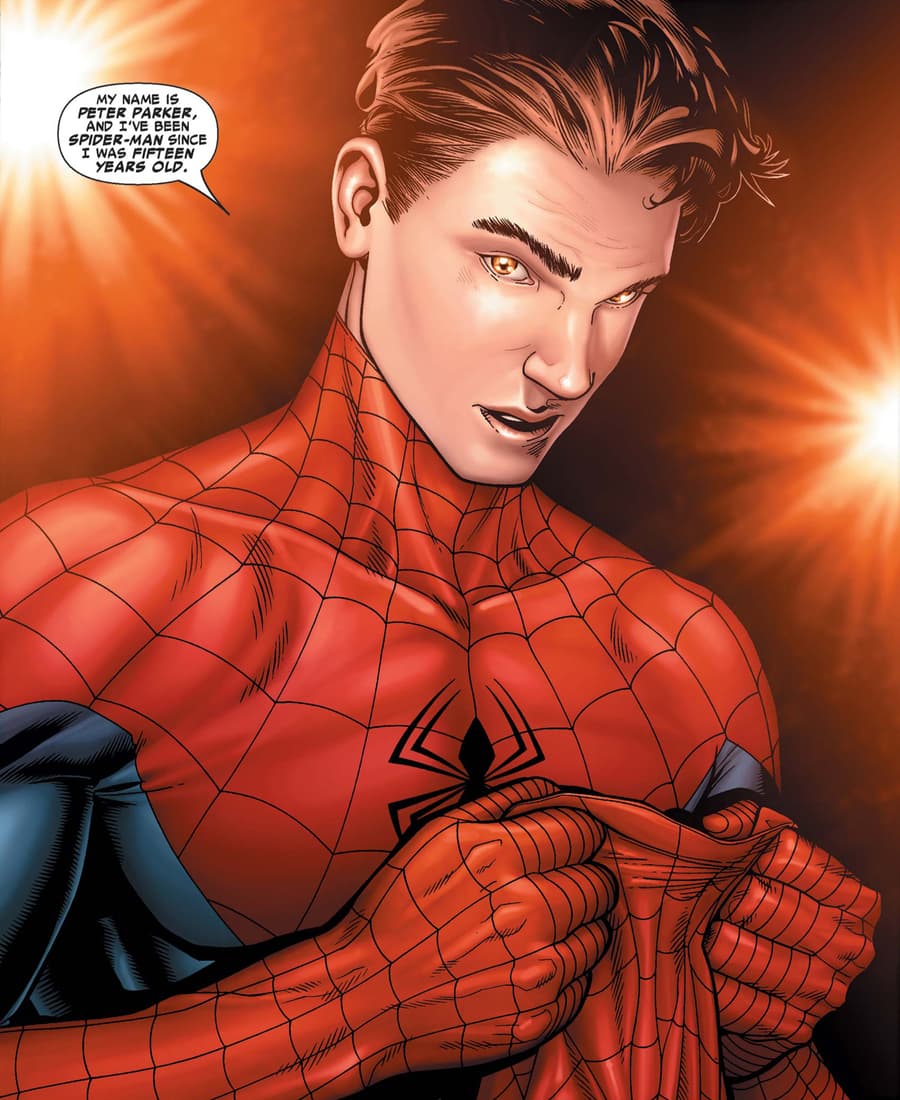
PROPOSITION X
When only a few hundred mutants remained on Earth, the X-Men moved to San Francisco, California. The city initially welcomed its new residents, but the mutant-hating Simon Trask tried to attack them through Proposition X. Introduced in UNCANNY X-MEN (1963) #509 by Matt Fraction and Greg Land, the Mutant Breeding Act Ballot Initiative sought to bar carriers of the X-gene from having children.
Trask and his Humanity Now! group marched to support the law, but Beast and several X-Men demonstrated against the proposal. When Hellion and a few other aggressive mutants turned those protests into a riot, Norman Osborn — who commanded the government's superhumans through H.A.M.M.E.R. — declared martial law and sent the Dark Avengers and Dark X-Men against the X-Men.
To protect mutants from Osborn's actions and the potential law, Cyclops moved the X-Men and their allies to Utopia, an island built from the remnants of Magneto's Asteroid M base. With support from Namor, Utopia acted as an independent entity for both mutants and Atlanteans.

UNDERAGE SUPERHUMAN WELFARE ACT
As the young heroes of the Champions fought an Asgardian beast, a malfunctioning Viv Vision caused an explosion that destroyed part of the Coles Academic High School and left Ms. Marvel hospitalized. After that disaster, the U.S. Congress passed the Underage Superhuman Welfare Act, or Kamala's Law, in OUTLAWED (2020) #1 by Eve Ewing and Kim Jacinto.
Kamala’s Law barred anyone under the age of 21 from operating as a vigilante without an assigned older mentor. To enforce the law, several former teen heroes and S.H.I.E.L.D. agents formed an agency called Child Hero Reconnaissance and Disruption Law Enforcement (C.R.A.D.L.E.).
In addition to targeting the bases of young hero groups like the Champions and West Coast Avengers, C.R.A.D.L.E. arrested several teen heroes and sent them to centers operated by the Roxxon Corporation.
With help from older heroes like Cyclops and Captain America, the Champions continued operating as outlaws until public support turned against the law. A recovered Ms. Marvel then revealed Roxxon's plans to spy on teens and deploy hero-hunting Chaperone robots, resulting in the government repealing Kamala’s Law.
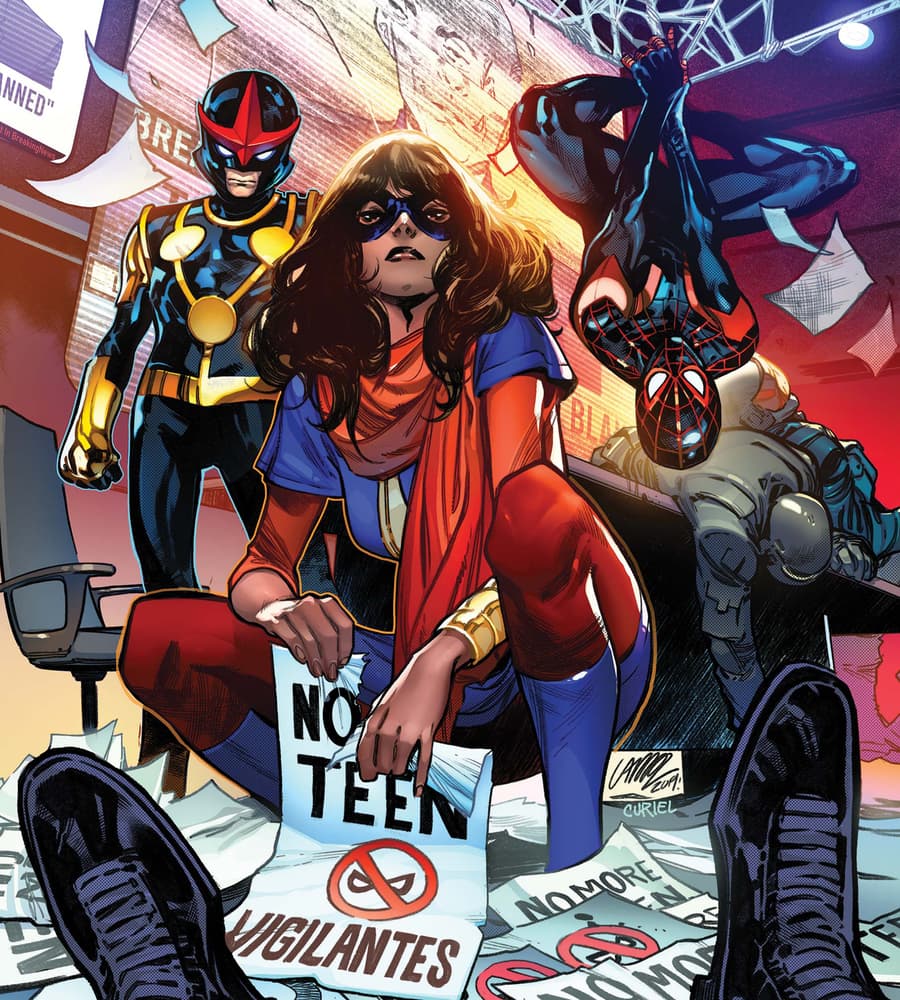
THE POWERS ACT
Wilson Fisk never stopped hating heroes, even after he stepped away from his past as the criminal Kingpin to become the Mayor of New York City.
When Fisk realized he could no longer remember Daredevil's secret identity thanks to the mind-controlling children of the Purple Man, Fisk declared war on vigilantes in DEVIL'S REIGN (2021) #1 by Chip Zdarsky and Marco Checchetto.
Mayor Fisk unveiled the Powers Act, which banned unlicensed superhuman vigilantes from New York City, whether their identities were public or not. Fisk's Thunderbolts were the only team legally allowed to operate in the city, and the former Kingpin filled the team with his villainous allies like Shocker, Rhino, and Doctor Octopus.
When Fisk enacted the Powers Act, his Thunderbolts relentlessly pursued vigilantes like Moon Knight and Spider-Man (Miles Morales). Doctor Octopus even took custody of the Fantastic Four's Baxter Building headquarters and used his technology to turn the city into a police state.
After giving an impassioned speech against the act, Luke Cage ran as Fisk’s opponent in the mayoral race. Luke Cage won and became the latest Mayor of New York City. As mayor, Luke Cage worked to overturn Fisk's law.

Want to learn more about Wilson Fisk's anti-vigilante task force? Join Marvel Unlimited for instant access to 30,000+ comics on the Marvel Unlimited app or on the web, with digital issues spanning Marvel Comics classics to ongoing series!
The Daily Bugle
Can’t-miss news and updates from across the Marvel Universe!

